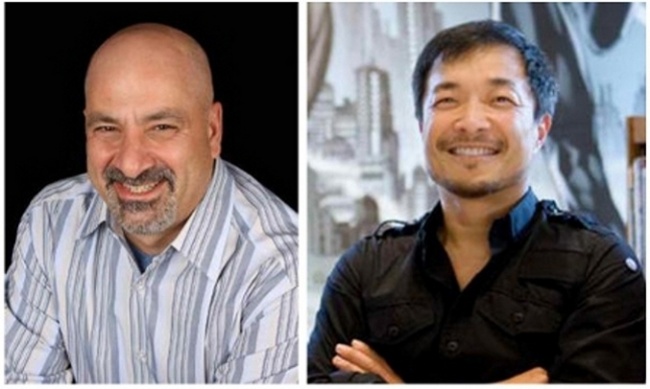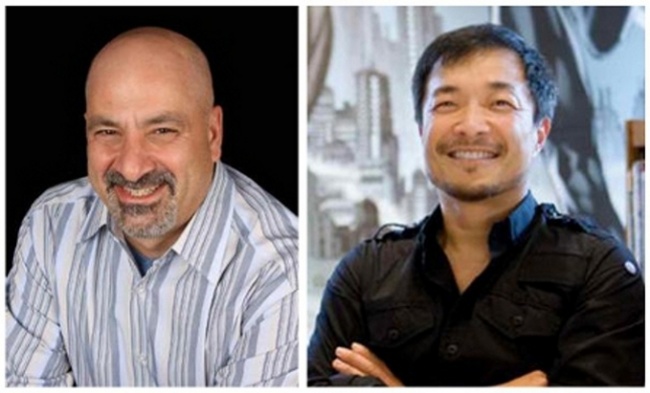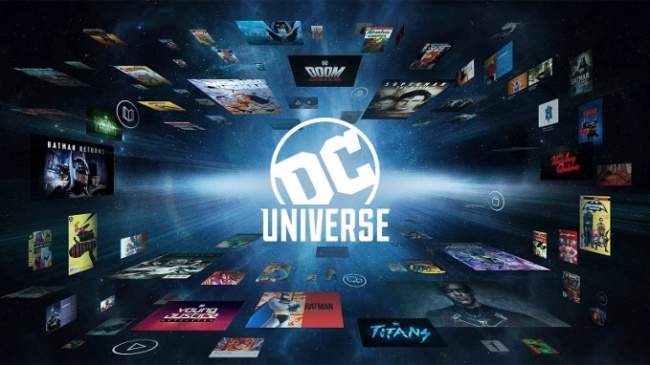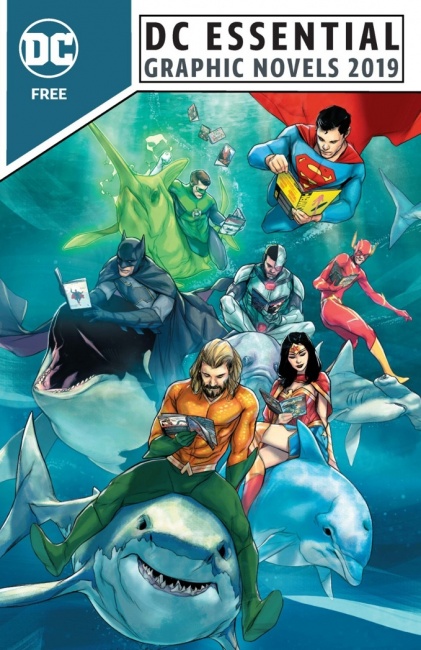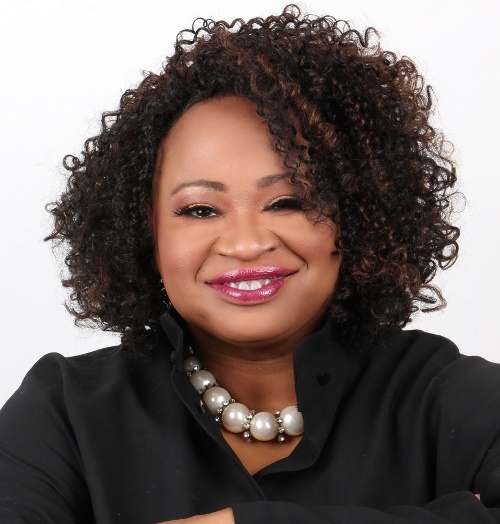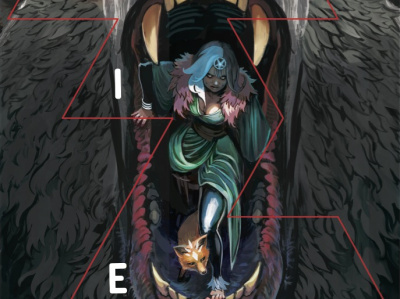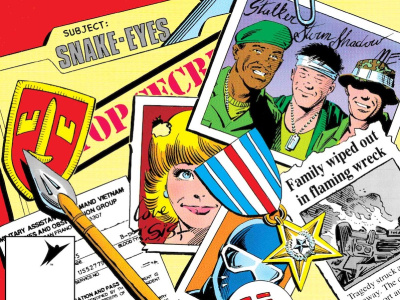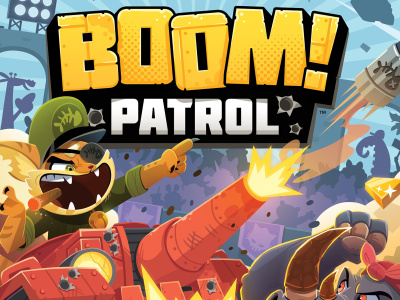We want to ask about DC Universe; that's obviously a big initiative for DC this year. We've seen it's not only going to be a channel for streaming and digital content, it’s also going to be a channel to sell products to some of your most engaged fans. Why do you need another sales channel for product--what do you think that adds to your distribution for physical products?"
Jim Lee: I think it adds that key direct‑to‑consumer engagement. We live in a day and age where technologies afford us the ability to communicate directly with the consumer, get their feedback in real‑time, and really cater to the desires and whims and things that they want to see us produce.
It's a fantastic opportunity to do that on every level, from media to comics to collectibles. I think you have to recognize that it's just one leg of the table, if I can look at it that way, that there's multiple forms of distribution on all the content we create.
It's all designed to be additive and to grow the business and to further engage our fan community, and again, grow the business. I think that's the prime directive.
For a retailer, how does it add to their business?
Lee: I think the idea is to grow the overall number of fans that love DC and that that will lift all boats.
Dan Didio: If I could just add to that, we have to understand or have to believe that fans that are going to be coming onto that site don't go into retail stores.
If they're going to be informed and learn about our characters through the site and through the product and they like more product, and if we're putting up just a portion of what we have, that means the retailer becomes the primary source for so much more material. It's additive then.
It's the same thing with Walmart. These are additive businesses to them. They'll hopefully go, but they're still the primary mecca for where all the pop culture information and all the stuff with our characters really exist.
Anything that we can do to grow the fan base and grow the number of people will hopefully drive them to these stores, too.
We talked last time about DC's efforts to grow in the book format and how you're changing your business; you did things to serve that market better (see "ICv2 Interview: DC Co-Pubs on Trends, Walmart, Mgt. Changes"). For our retailer audience, what you think they should be doing to serve the book market better?
Didio: I go to a lot of stores, and I talk to a lot of retailers on a pretty regular basis. One of things I find is that they're the only ones that can really get that true sense of community. You see it at conventions, you see it at the shows, but on a weekly basis, on a daily basis, the retailers really are the ones who are the voice for the industry, and actually the mecca where people come to share their thoughts and their likes and dislikes of what's going on in the comic space.
The stores that I really enjoy are the ones that create the events, bring in the artists, bring in the sketch things, anything they can do to make it more of a community feel than just about whatever book is coming out on that day.
I find that when you bring those things together and bring those events together, the people there naturally start to purchase and buy books and stuff to get more involved, and see the excitement on other people's faces and try things themselves.
It's one thing for the staff to be pushing what's on their wish list. It's another thing to get together with a bunch of people, and find out what they're liking and buy it.
In other words, the same tools they're using for periodical comics.
Didio: Oh, yeah, absolutely. You see it all the time. You go to a Barnes & Noble, and you get a large turnout because there's a signing there, there's community things for kids, there's things of that nature that just become a destination more-so than just a purchase destination.
We have been so driven by Wednesday being that day that everybody goes to the comic store; we have the expression Wednesday Warriors. It's not just about that anymore. You don't want to be open one day a week and then be out of business six. Therefore, you've got to do things that really draw people in, and you just can't take it for granted. You got to work at it, just like we got to work at it.
Lee: If I can add to that. Far be it for us to... We're not retailers, but the ones that have been successful in my mind are the ones that understand the difference between a trade and periodical. The trade is a complete story.
It was a tool specifically designed to kind of walk people through our universe, which is very deep and broad, and there's just so much. I think the people get lost, "What do I buy?" When you stare at a wall of periodicals or even trades like, "What should I buy first?"
I think that's hyper-critical in easing people into it, so that they understand it from a point of reference that they love and understand. Then that allows them to sort of expand and explore based upon their interests.
I assume that all the great retailers do that, the same way they hand-sell things to their customers, and that they're inclusive and fan friendly, and all that.
You have a new boss, Pam Lifford (see "Pam Lifford New DC Boss in Warner Bros. Restructuring"), and she had a somewhat similar career track to Diane Nelson (came out of Consumer Products), but this is a new situation and we’re interested in your interactions with her. What does her different experience bring to the table in terms of new insights or directions for DC?
Didio: She is passionate about understanding about the characters, and making sure that we expand the awareness of them. She's very much built for the franchise business, and the brand part of the business. Because of that, we want to make sure that the tonality, the voice of our books have a sensibility that seems to match what people's expectations are, which is something we should be doing anyway in our comics.
This is a new relationship so we're excited, and we're pushing it forward and we're hoping that we all together, through her and the new areas that are responsive to her, are able to grow ourselves in ways that we haven't seen before.
Lee: Yeah, look. She has a vision for what this business can be, an understanding that today's consumers live in a world where this content is available 24/7 and that a fan can come into this from a number of different touchpoints. It's not just from watching a TV show or reading a comic book. It might be that as a little kid they buy an action figure, and that's how they bond or embrace the DC universe. She's looking at it from a very global, holistic point of view, and understanding that that experience is crucial to growing our fan base and growing the business.
It's really interesting to see the business through that prism, and with her leadership, we feel that we're going to do some really big and different things, and we're excited for that.
What are you most excited about for 2019?
Lee: Beyond the stuff that we talked about already, I'm going to give a shout-out to the Shazam movie. I think it's going to really surprise people. I think people maybe have preconceptions of what Shazam means, but if you've seen Zachary Levi on stage talking about it, the guy is 100 percent charisma stuffed into a chiseled body.
It is a fantastic movie and a lot of fun. I think it's going to be a huge hit amongst the fans next year.
Didio: It's the young adult material. It's two years in the making. There's a lot of work on those pages right now, and we're building three years' worth of product, and we've been building it over two years.
The fact that we're going to be coming close, and then finally having these books starting to come out next year, is exciting for us because we have a lot of faith in this; but we also feel that it's going to be really, really a leader in the marketplace, and hopefully for our business and the growth of our business too.
Click here to go back to Part 1.



